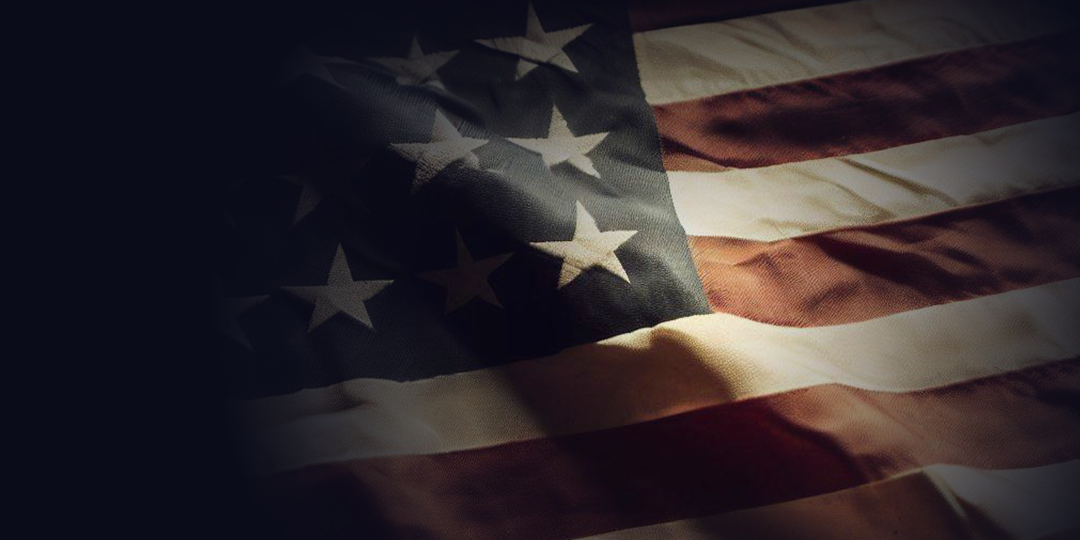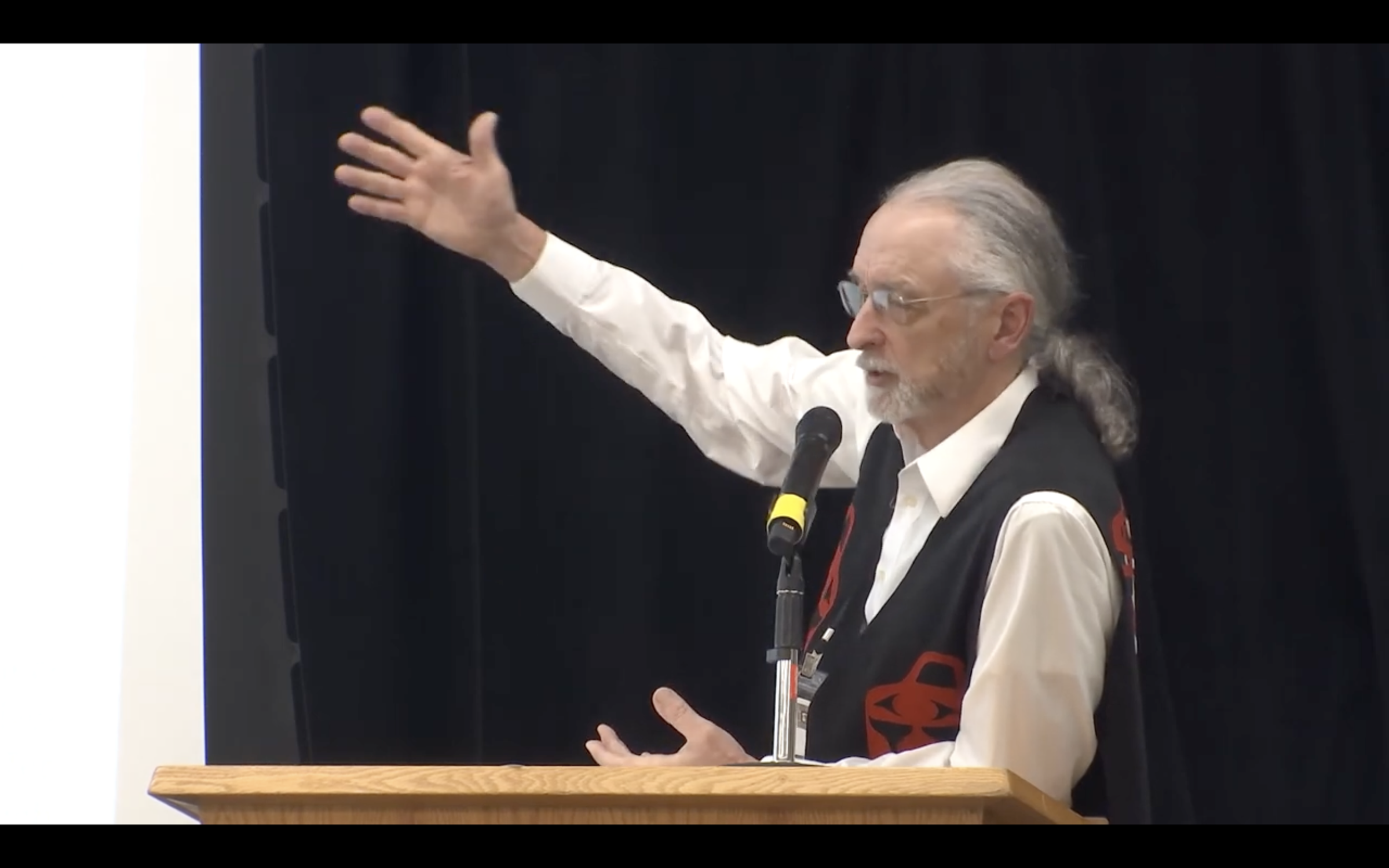
Episode Transcript | Download Episode
Episode Summary: In 1923, two respected Tlingit elders in Wrangell were arrested. Charlie Jones was charged with illegal voting and perjury for voting in the 1922 general election. And Tillie Paul Tamaree was accused of inducing him to do it. The arrests were the latest escalation in a long, simmering battle over Alaska Native rights. This is the story of what happened in Wrangell, before Election Day, on Election Day, and after. The arrest of Charlie Jones and Tillie Paul-Tamaree wasn’t just about politics. It was about family. (Published on October 24, 2020)
Tillie’s Descendants Speak
Ben Paul addresses the 2019 Sharing Our Knowledge conference on the subject, History of Tillie Paul Tamaree.
Debra Dzijuksuk O'Gara addresses the Friends of Sheldon Jackson Museum in a talk entitled, Tillie Paul Tamaree: Educator and Tribal Historian.
Timeline
Around 1863: The exact birthdate of Matilda Paul-Tamaree is unknown, but estimates hold it to be around 1863 in the Pacific Northwest. Her mother is Hoont’hut, a Tlingit woman from the village on Wrangell Island. Her father is James Kinnon, a Scotch man employed by the Hudson’s Bay Company. Stories from Tillie’s youth are included in her autobiographical book of stories for children, Kahtahah.
August 1868: The United States Army begins construction of Fort Wrangel. The fortress sits north of the Tlingit village, Kaach.xan.a’kw, and is home to dozens of US Army officers, soldiers, and their families.
December 1869: The United States Army bombs the village of Kaach.xan.a’kw for two days after Christmas. This story is featured in The Christmas Bombardment. According to Tillie Paul-Tamree’s son, William, Tillie is present during the bombing.
1877: After nearly one decade under the United States, Fort Wrangel is a mess. Amanda R. McFarland arrives in Fort Wrangel to support a mission started by Tsimshian missionary, Philip “Clah” McKay. In order to protect Tlingit girls from gold-miners and arranged marriages, McFarland establishes a boarding school for girls.
Tillie becomes one of her pupils. For Tillie, this begins a lifelong relationship with the Presbyterian Church. She translate English into Tlingit for the missionaries and becomes recognized for her talents. She becomes a missionary, marries Lewis Paul, and leaves Wrangell.
Image Source: Wikipedia.
1904: Matilda Paul-Tamaree is called back to Wrangell, to once again serve at the Presbyterian Church, following a schism led by former Presbyterian minister H.P. Corser (see Reverend Corser’s Rebellion).
1917: William Paul lives in Oregon working in the insurance industry. By night, he takes correspondence classes in law from LaSalle Extension University. LaSalle revolutionizes the process of earning academic degrees through the mail. This method allows many non-White students to gain academic degrees for the very first time.
Wrangell, 1922
1922: Wrangell is one of Alaska’s leading cities. It has survived the boom-and-bust of three gold rushes. Wrangell is connected by regular steamships and telegraph wire. Wrangell is still a small town, less than a 1,000 people, and tightly packed. And yet, deep racial divisions remain. Wrangell’s White community leaders support fish traps, school segregation, and challenge the the rights of Alaska Natives to vote in elections.
Image Credit: Wikipedia
January 1922: William Paul travels to Congress to testify on behalf of Alaska Native fishermen. Fish traps around southeast Alaska deplete the supply of salmon and exclude Alaska Native people from traditional fishing grounds. William Paul says:
“Charlie Jones, with a crew of six men (one of them is almost blind, and, following the practice of the natives of Alaska of helping one another, they took this semi-blind man along, because he had a family of six children, and the crew to help him), at the end of the fishing season they had coming to them $17.70 per share, on which those men must live from the end of the fishing season to the next fishing season.”
April 1922: Tlingit man George Mason attempts to vote in the Wrangell election and is denied by election judge Leonard M. Churchill.
Day Before Election Day 1922: William Paul sues Leonard M. Churchill on behalf of George Mason for denying his right to vote. From the Petersburg Weekly Report:
“In what is said to be an attempt to influence election judges in Southeastern Alaska, a suit was filed in the District Court recently in which George Mason, a native, asks for $5,000 damages for being refused a chance to vote at the primary election last spring. The suit was filed on the eve of election by W. L. Paul as attorney for Mason and is against L. M. Churchill, one of the election judges at Wrangell at the primary election.”
This photo shows the location where voting was held in November 1922. Today, the building is the Wrangell Senior Center.
Election Day November 1922: Charley Jones attempts to vote and—just like George Mason—is denied the right to vote by election judge Leonard M. Churchill, along with two others. After leaving the polling place, Charley Jones runs into Tillie Paul-Tamaree. She listens to his history, and returns with him to the polling place, where she confronts the election judges. After compelling Charley Jone to swear an oath, the election judges allow Charley Jones to cast his vote.
Ketchikan, Alaska
A clipping from the indictment of Charley Jones. (image source: vilda.alaska.edu)
March 23, 1923: A grand jury in Ketchikan, Alaska approved the indictment of Charlie Jones not just for illegal voting, but for perjury, for the oath he sweared in order to vote. The grand jury also indicted Tillie Paul-Tamaree for inducing an Indian to vote. The District Court in Ketchikan issues a bench warrant for Charlie Jones and Matilda Paul.
Petersburg Weekly Report April 06 1923
April 6, 1923: The April 6, 1923 Petersburg Weekly Report summarizes the case:
“The question as to whether or not Indians have a right to vote in Alaska may be tested in the United States courts. The issue, apparently, has been joined as a result of Wrangell Indians being indicted for violating the election laws of Alaska, and taken to Ketchikan for trial.”
October 1923: Tillie Paul-Tamaree’s son, William Paul, represented Charlie Jones in court. William Paul is Alaska’s first Alaska Native attorney. He is known for his long, legal career fighting for Alaska Native land claims.
William Paul is famous for coining the term “Toilet Paper Defense.” As he brainstormed ways to prove Charlie Jones lived as a civilized man, he joked that he should just ask Charlie Jones if he used toilet paper. It is not clear this was ever actually said in court, but the story lives on.
October 9, 1923: After only a few hours of deliberation, the Ketchikan jury renders a verdict: not guilty. The judge dismisses Tillie Paul-Tamaree’s charges. William Paul secures a victory for Alaska Native voters.
According to the caption on this painting from the Wikipedia Commons, W. Langdon Kihn painted this portrait of Chief Shakes VII (Charlie Jones) in 1943, shortly before Jones passed away.
June 1940: The United States federal government hires Charlie Jones, and several fellow Tlingit carvers, to construct a traditional tribal house on Shakes Island in Wrangell, Alaska. At the grand unveiling, Charlie Jones dons traditional regalia and presides as Chief Shakes VII.

















